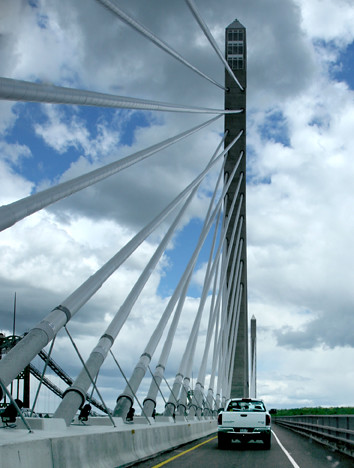 When you pull a kid from class for a week, you disrupt the lesson plan of the teacher and slow your child 's progress. But travel can develop strong family ties and provide a richer learning environment than any cement building in a kid's home town. If you develop an educational agenda, you can make roadtrips a fun and enriching experience.
When you pull a kid from class for a week, you disrupt the lesson plan of the teacher and slow your child 's progress. But travel can develop strong family ties and provide a richer learning environment than any cement building in a kid's home town. If you develop an educational agenda, you can make roadtrips a fun and enriching experience.About a year ago there was a discussion at Fodor's Forum on whether it was a good idea or a bad idea to take kids out of school for a family trip. Many thought it was fine, some others felt strongly that it was disruptive of the school routine and therefore that it was bad for the kid, bad for the teacher, and bad for the other students in your child's class.
I feel differently.
Travel presents endless opportunities for education, if you let it. My feeling is that the most important things in life are not taught at school. That’s not to say that school isn’t important, but that schools can't teach the critical lessons. They can barely afford a field trip to the science museum, let alone a trip to Europe. You learn by walking around a place, smelling the air, seeing the sights and tasting the (yuk) escargot. And asking questions.
I travel a lot for work; if it's not too far we pack up the family and head out. We feel that every road trip is an opportunity to teach our kids about this country: people; rocks and volcanoes; fish, bees, cactus and trees; government, wars...
Don’t bring the same old books from home for the kids to read, get books from the library about where you’re going. Start reading a couple of weeks before you go. And make scavenger hunt scrap books as escargot describes. We’ve had a ton of success with an old point and shoot digital camera with our son who is now six. Take some time to learn about some cultural or natural history to use as talking points on your trip.
- Compassion, which you learn by understanding many different points of view.
- Diplomacy, which you learn by experiencing many different cultures.
- How to manage your money, which can be taught while traveling.
- How the natural world works, which makes a lot more sense when you’re standing in the middle of it (it’s hard to picture the size of a glacier when you’re in a class room, but a lot easier when you’re standing in Glacier National Park or next to the Mission Mountains as in the photo).
Maybe the most important thing is learning and experiencing new things with your family.
The world needs more smart people making smart decisions and asking the right questions. Much of what goes wrong in the world is because adults do dumb things: lie, steal, ignore the obvious, and fail to ask questions about the big picture.
What do you think?






1 comment:
Right on! I really like your points about compassion and diplomacy in particular.
When we hit the road, our almost-7-year-old keeps a travel journal that he writes in every day (and in which we tape photos after we get back). For our five-year-old, who can't write yet, we bring activity books (e.g., on our trip to Egypt we gave him an Ancient Egypt Scratch and Sketch book). And, of course, we always bring along age-appropriate books about the local culture (e.g., children's books about pyramids and pharoahs and mummies).
Thanks for the great article,
Wendy Perrin
Conde Nast Traveler magazine
http://perrinpost.com
Post a Comment